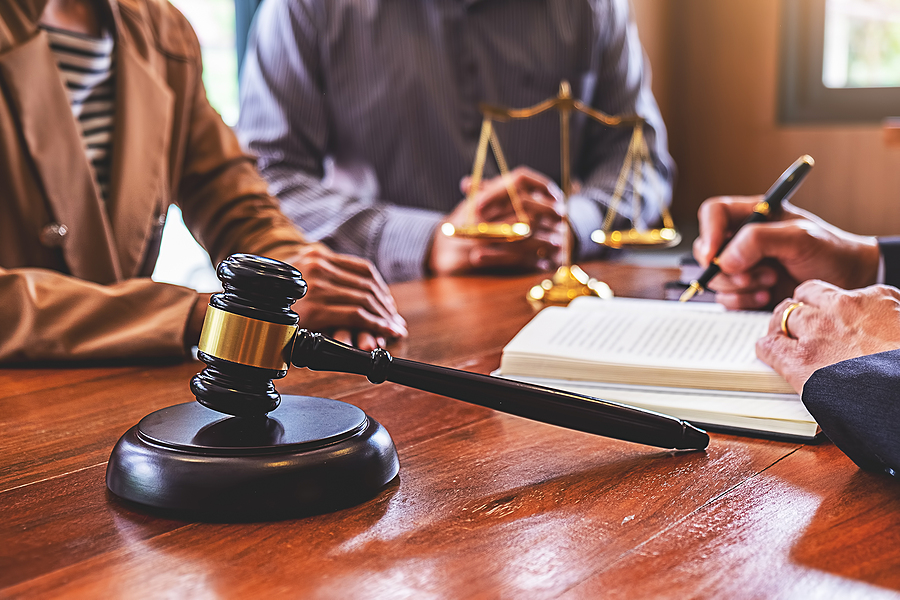What Happens At An Auto Accident Deposition?
 Michael Babboni
Car Accidents
After a car accident, it’s important that you understand the basic legal process. Understanding the process can help you stay prepared and can give you confidence in the process. There are three general parts to a car accident case: Deposition, Mediation, and Trial. If things are resolved early, you may only have to have to have the deposition or the mediation. In order to help prepare you for the claim’s process, here is everything you need to know about what happens at a deposition after a car accident.
Michael Babboni
Car Accidents
After a car accident, it’s important that you understand the basic legal process. Understanding the process can help you stay prepared and can give you confidence in the process. There are three general parts to a car accident case: Deposition, Mediation, and Trial. If things are resolved early, you may only have to have to have the deposition or the mediation. In order to help prepare you for the claim’s process, here is everything you need to know about what happens at a deposition after a car accident.What Is A Deposition?
A deposition is essentially a meeting where both sides get together and provide testimony. Both the plaintiff and the defendant will be questioned by the attorneys. These questions will be under oath and will be used during the length of the case. Depositions can be very stressful because the answers you give will have a major impact on your case. Sometimes the unscrupulous attorneys from the insurance companies will ask trick questions in hopes of trapping you into saying something damaging to the case. So it is important you prepare.
How To Prepare For A Deposition
The best way to prepare for a deposition is to work with your attorney. They will walk you through the process and help you practice answering questions under stress. There are some common questions that you can expect during a deposition. These questions are designed to help prove fault. Your attorney will also go over these questions with you to help you understand how to answer to protect your rights. Some questions you may be asked at a deposition include:
● What is your name, address, and other identifiers like date of birth?
● What was the status of your mental and physical health prior to the accident?
● When and where did the accident happen?
● What were you doing before, during, and after the accident?
● Did you speak with anyone following the accident?
● Did you seek medical treatment after the accident?
● Have you had a diagnosis from a physician and undergone any treatments or procedures?
● How much has this care cost you?
● How has the accident impacted your life and what has changed since the accident?
The way you answer these questions will make a big impact on your case. So make sure that you follow your attorney’s recommendations.
What Is A Deposition Like?
Depositions are very stressful, but they are also pretty straightforward. Typically a deposition is conducted at an attorney’s office. However, sometimes they happen at the court, a public library, and even your hospital room. The location is usually determined in a mutual agreement that meets the needs of all parties. When the deposition starts you will be given the oath to speak the truth. Once under oath, anything you say is on the record and it’s crucial to tell the truth or you may face legal penalties. Then the attorneys will begin asking questions and you will provide your answers. The deposition is recorded and both attorneys are provided with the transcripts.
What Happens After The Deposition?
After the deposition, the attorneys will review the transcripts. Sometimes the deposition can lead to a settlement that is agreeable to both parties and the claim can end. However, oftentimes, after a deposition, more questions appear. So the attorneys may decide to call for more testimony at a second deposition to get clarification. During this time you may be asked more questions, but they may also call other witnesses, including expert witnesses to provide testimony. Once all this information is gathered and there still isn’t a satisfactory settlement offer, the attorneys may decide to start the mediation process.
The St. Pete’s Lawyer, Michael Babboni, has been helping auto accident victims in Southwest Florida for nearly 30 years. In that time he’s done thousands of depositions and understands exactly what is needed to get a full and fair settlement. He’ll walk you through the entire process and make sure that you are comfortable and confident the whole time. To get started, give him a call at 1-727-381-9200 for a free case review and ask any questions you have about the legal process.
